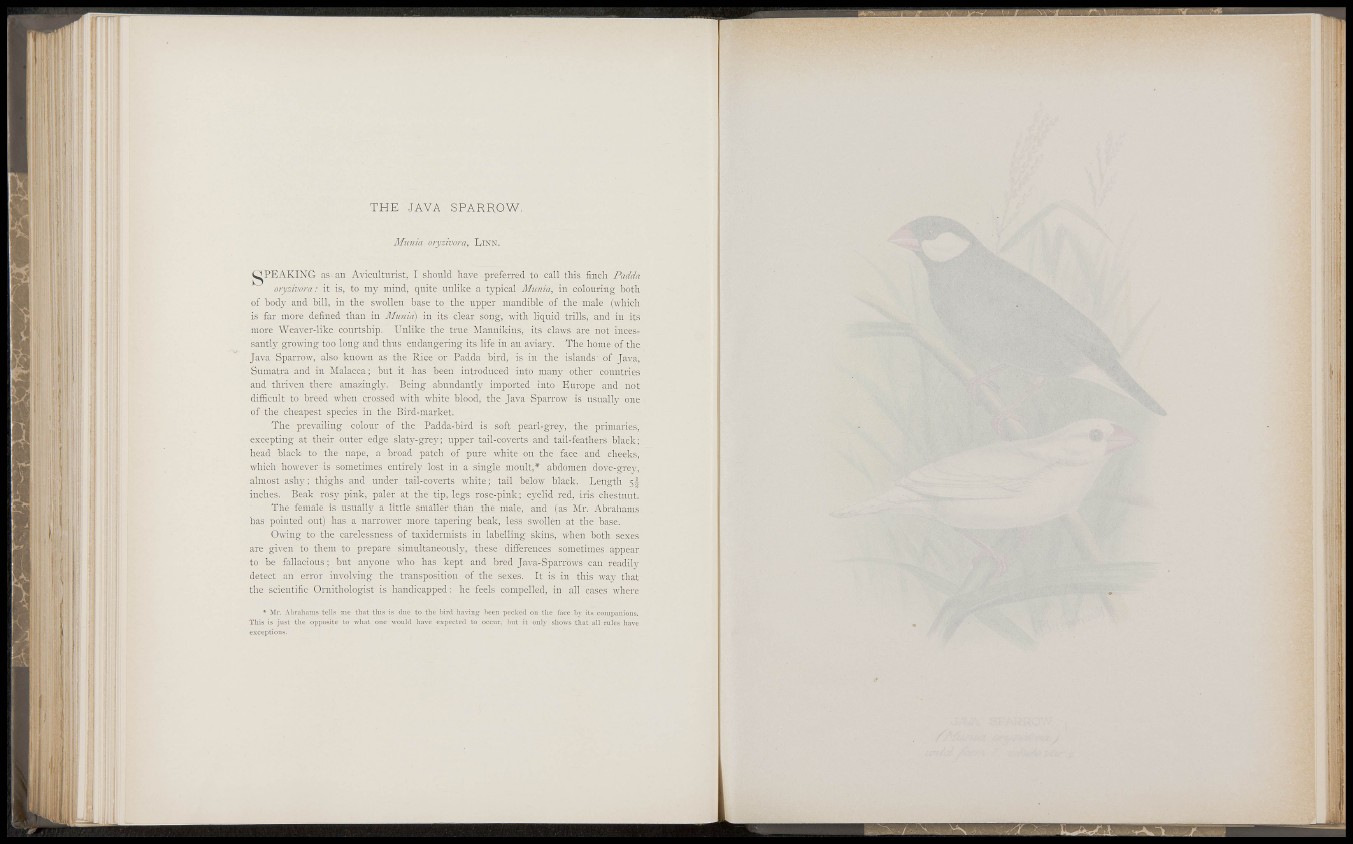
f
' I
' ' I R'
• I •
i ; . : i
i! fi' i-
'ill
T H E JAVA SPARROW.
Jliimia oiyzivora. LINN.
( ^ P E A K I N G as an Aviculturist, I should have preferred to call this finch Padda
oryzivora: it is, to mj- mind, quite unlike a t3'pical Munia, in colouring both
of bod}' and bill, in the s-si'ollen base to the upper mandible of the male (which
is far more defined than in Munia) in its clear song', with liquid trills, and in its
more Weaver-like courtship. Unlike the true IMannikins, its claws are not incessantlj'
growing too long and thus endangering its life in an aviar}-. The home of the
Java Sparrow, also known as the Rice or Padda bird, is in the islands of Java,
Sumati'a and in Malacca; but it has been introduced into man}- other countries
and thri-i-en there amazingi}-. Being abundantly imported into Europe and not
difficult to breed when crossed with white blood, the Java Sparrow is usuall)- one
of the cheapest species in the Bird-market.
The prevailing colour of the Padda-bird is soft pearl-grey, the primaries,
excepting at their outer edge slat3--grey; upper tail-coverts and tail-feathers black;
head black to the nape, a broad patch of pure white on the face and cheeks,
which however is sometimes entireh' lost in a single moult,* abdomen dove-ere}.-,
almost ash}-; thighs and under tail-coverts white; tail below black. Length 5.1
inches. Beak rosy pink, paler at the tip, legs rose-pink; eyelid red, iris chestnut.
The female is usually a little smaller than the male, and (as Mr. Abrahams
has pointed out) has a narrower more tapering beak, less swollen at the base.
Owing to the carelessness of taxidermists in labelling skins, when both sexes
are given to them to prepare simultaneously, these differences sometimes appear
to be fallacious; but anyone who has kept and bred Java-Sparrows can readil}'
detect an error involving the transposition of the sexes. It is in this way that
the scientific Ornithologist is handicapped : he feels compelled, in all cases where
* :Mr. AbraliEiiii.s tells n]e that t!ii.s is due to tlie bird been pecked on tlie face b}- its companions.
This is just the opposite to wliat one -\voukl have expected to occur, but it only shows that all rules have
exceptions.